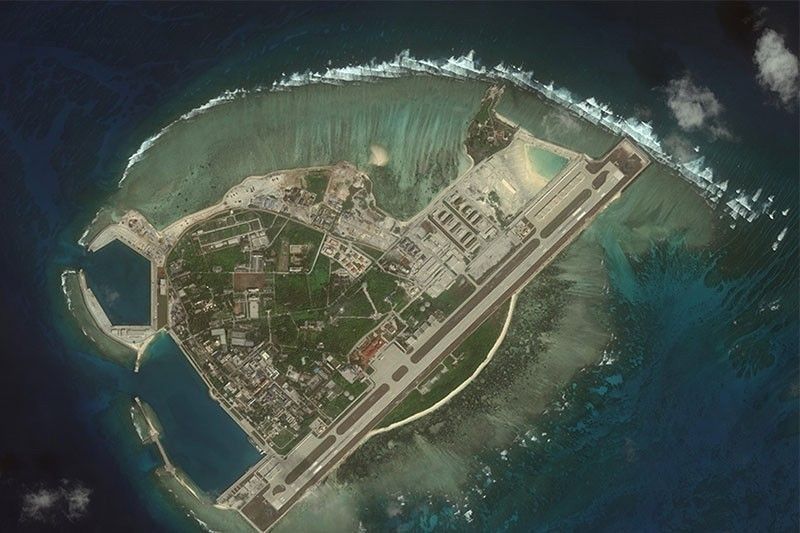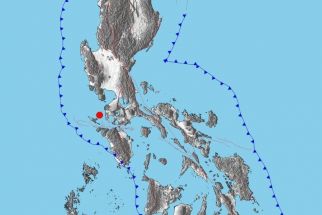Philippines, China to improve maritime communication

MANILA, Philippines — The Philippines and China have discussed improving maritime communication mechanisms and promoting dialogue between their coast guards, according to Beijing’s foreign ministry.
Representatives of the two countries arrived at the consensus during the 9th Meeting of their Bilateral Consultation Mechanism on the South China Sea in Manila on Tuesday.
China’s foreign ministry said the two sides had a candid and constructive exchange of views on the situation in the South China Sea, particularly on handling the situation in Ayungin Shoal.
Aside from improving maritime communication mechanisms, the two countries also agreed to advance cooperation in marine science and technology and environmental protection.
Although seen as responsible for provoking confrontations at sea, China has called on the Philippines to stop maritime infringement and provocation and to jointly manage the situation in Ayungin Shoal with the Chinese to pave the way for easing of tension and restoring stability of China-Philippines relations.
Foreign Affairs Undersecretary Ma. Theresa Lazaro, for her part, made it clear to Chinese Vice Foreign Minister Chen Xiaodong that the Philippines would remain relentless in protecting its interests and upholding its sovereignty, sovereign rights and jurisdiction in the West Philippine Sea.
The United States said it welcomes China’s latest peace overtures but doubts Beijing’s sincerity, saying its “actions speak louder than words,” especially in the Ayungin Shoal issue.
On Tuesday, Beijing deployed its massive coast guard vessel with body number 5901 – called “The Monster” – to Ayungin Shoal.
US welcomes deescalation
State Department principal deputy spokesperson Vedant Patel said the US welcomes any efforts to de-escalate tensions in the South China Sea but warned about China’s destabilizing actions in the region.
“But specifically in this context, I think when it comes to the PRC (People’s Republic of China), actions speak louder than words, specifically for our partners in the Philippines, when we’re talking about the Second Thomas Shoal and some of the destabilizing actions that the PRC has taken in that region,” Patel said, referring to Ayungin by its international name.
“We would welcome steps to de-escalate, but… in the South China Sea, especially in the context of the Second Thomas Shoal, you have seen PRC actions inconsistent with a stated goal,” Patel emphasized.
On June 17, the China coast guard committed its most violent act so far to stop a Philippine resupply mission to BRP Sierra Madre in Ayungin Shoal.
In the aborted resupply mission, the Chinese boarded Filipino boats and destroyed their communications and navigation equipment. The Philippines protested the aggression.
Utmost caution
In an interview with “Storycon” on One News, De La Salle University international studies professor Renato de Castro said Philippine government should observe utmost caution despite Chinese claims that it is open to a deescalation of tension in the West Philippine Sea.
“We have to differentiate between conflict management and conflict resolution. What is happening is conflict management because the tension already existed on June 17. But if a Filipino died that time, it will be worse,” De Castro said.
He said the CCG actually wanted the Philippine Navy to fire the first shot during the June 17 incident.
“If the Philippine Navy took the first shot on June 17, the Chinese can claim that they acted in self-defense. Our coast guard did not fire. We were able to block the technique of the Chinese for us to fire first,” De Castro said.
“Yes, the Chinese should deescalate. Let’s go to the status quo. Then allow us to deliver supply and they stop the harassment,” he added.
De Castro said that based on recent experiences, the Chinese are “saying one thing and doing something else.”
He cited that a hotline supposedly provided by China to prevent tension in WPS was almost useless.
“We used the hotline, but it took the Chinese six hours to answer. And they even scolded us for complaining,” De Castro said.
He said even the decrease in number of Chinese boats in WPS should not be immediately taken as a sign that the Chinese are deescalating.
“There are many reasons why the boats are lessening in numbers. Probably, they are just replenishing, or it is just a tactical action,” De Castro said. – Jose Rodel Clapano
- Latest
- Trending































